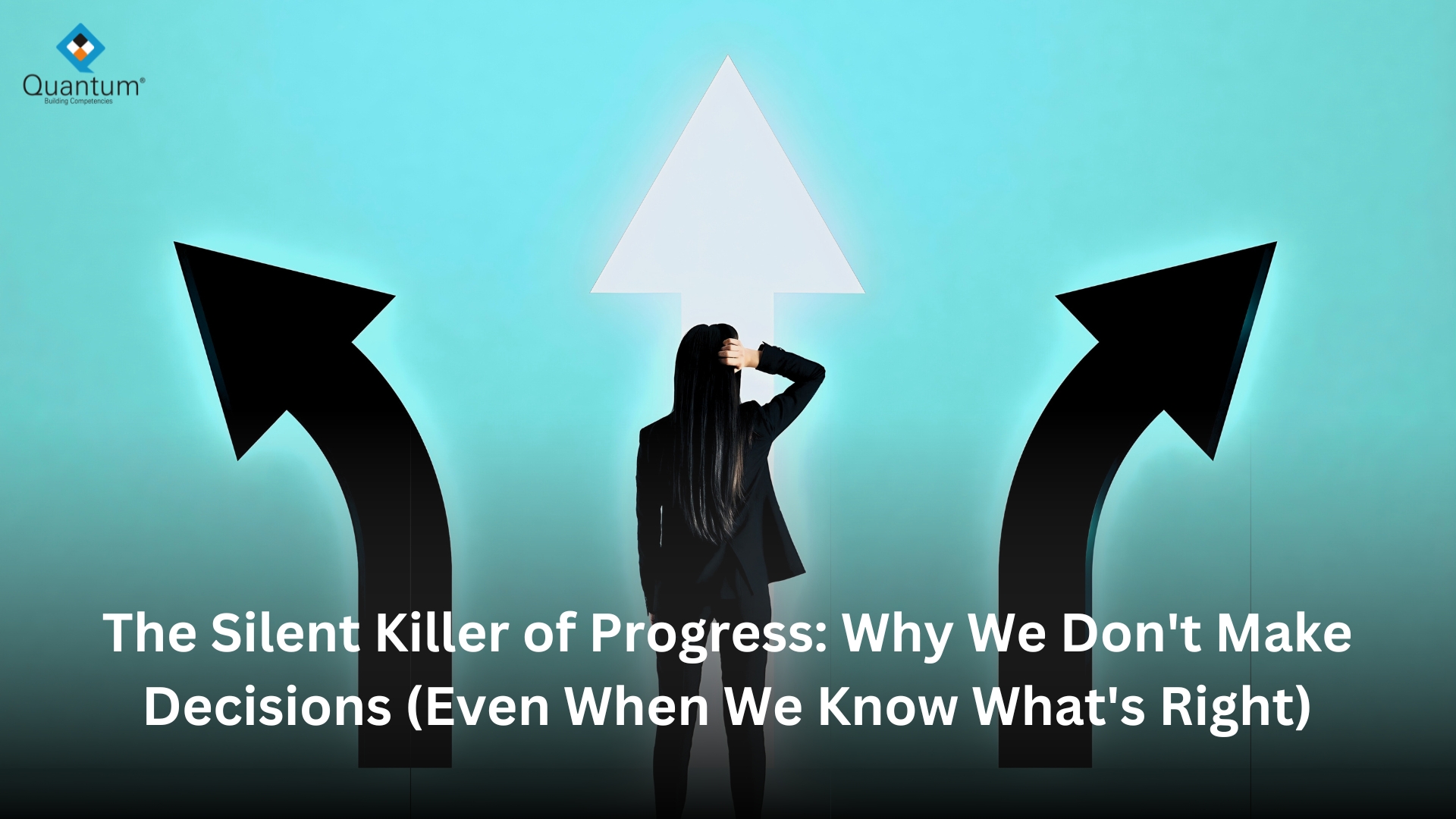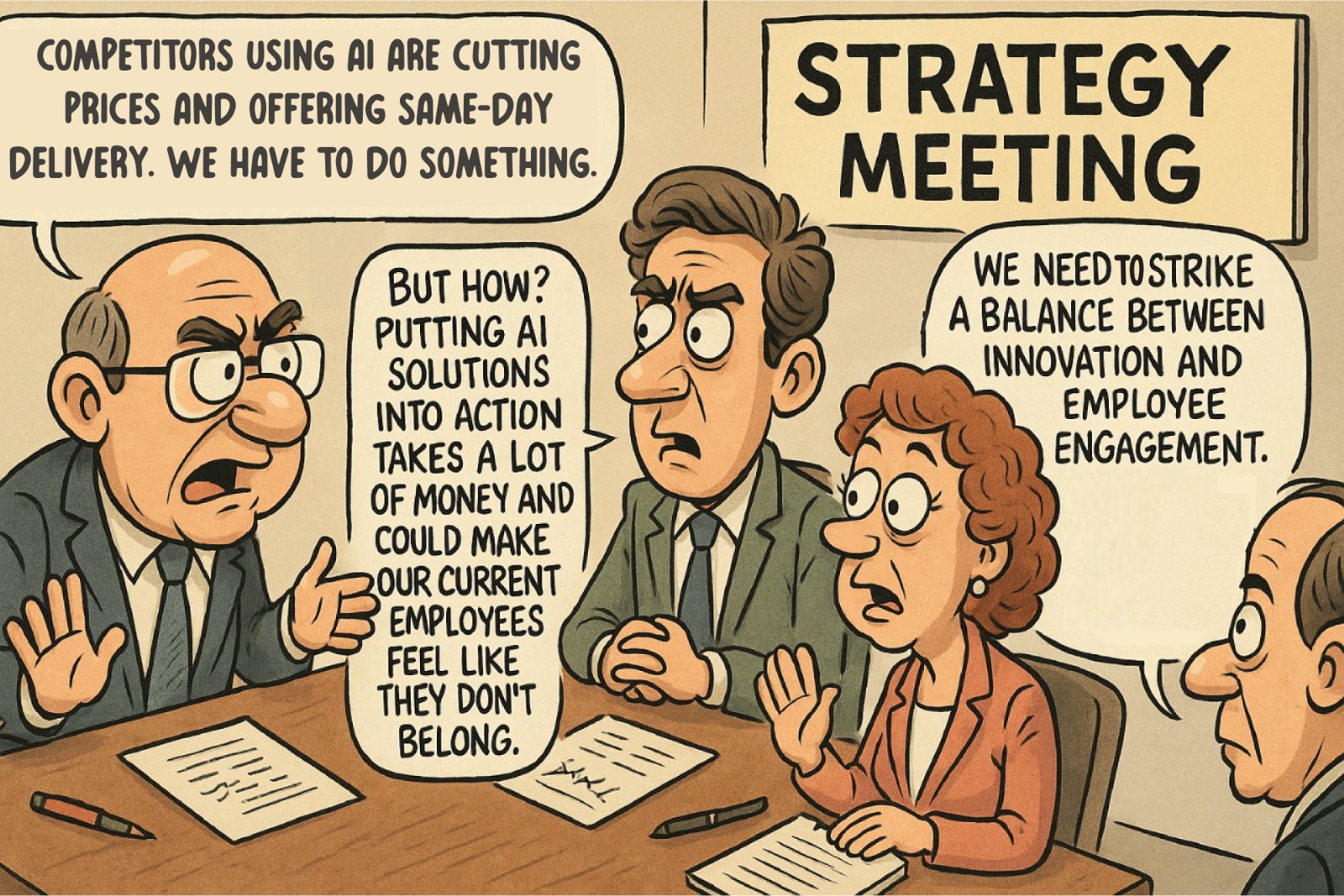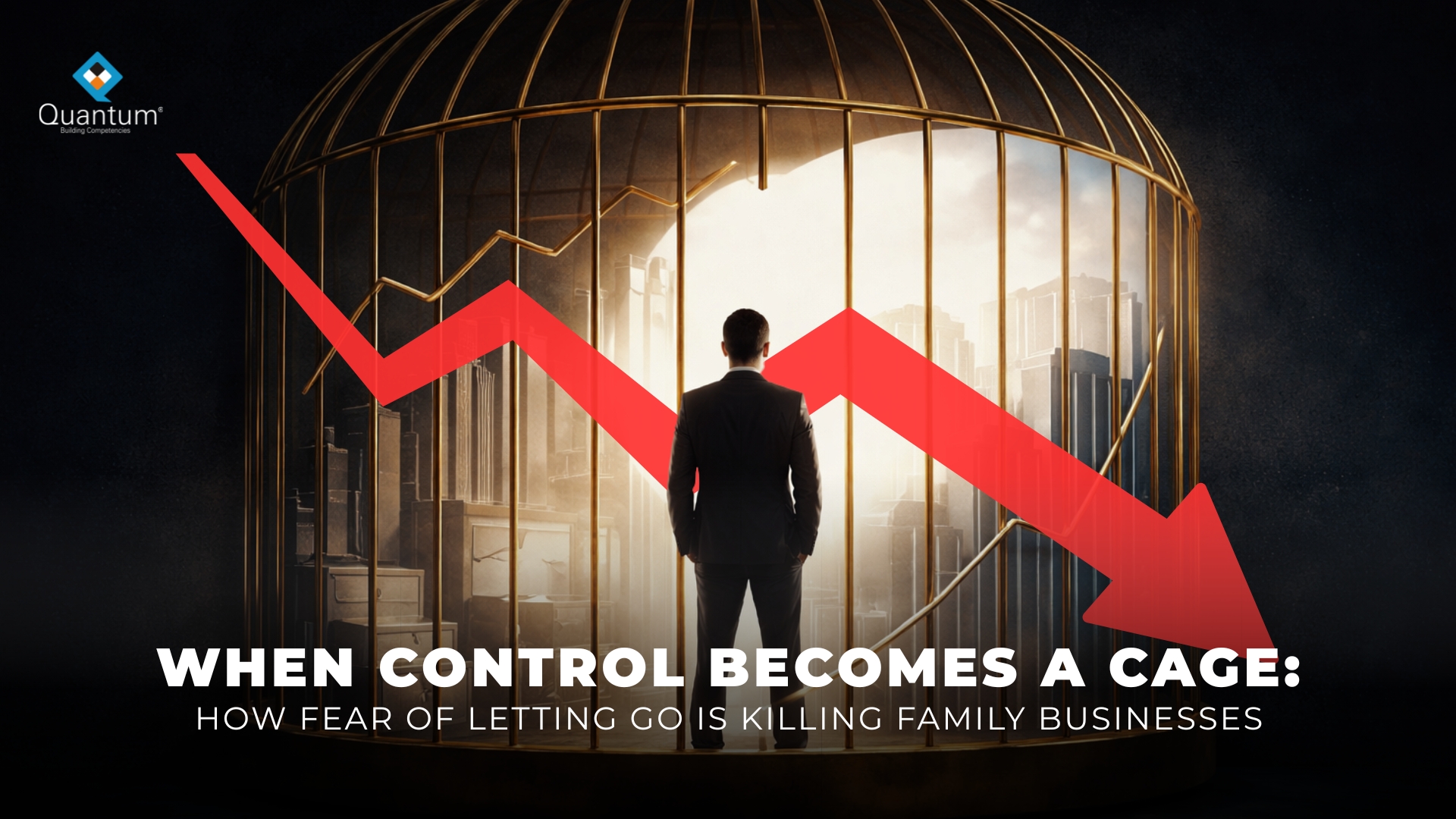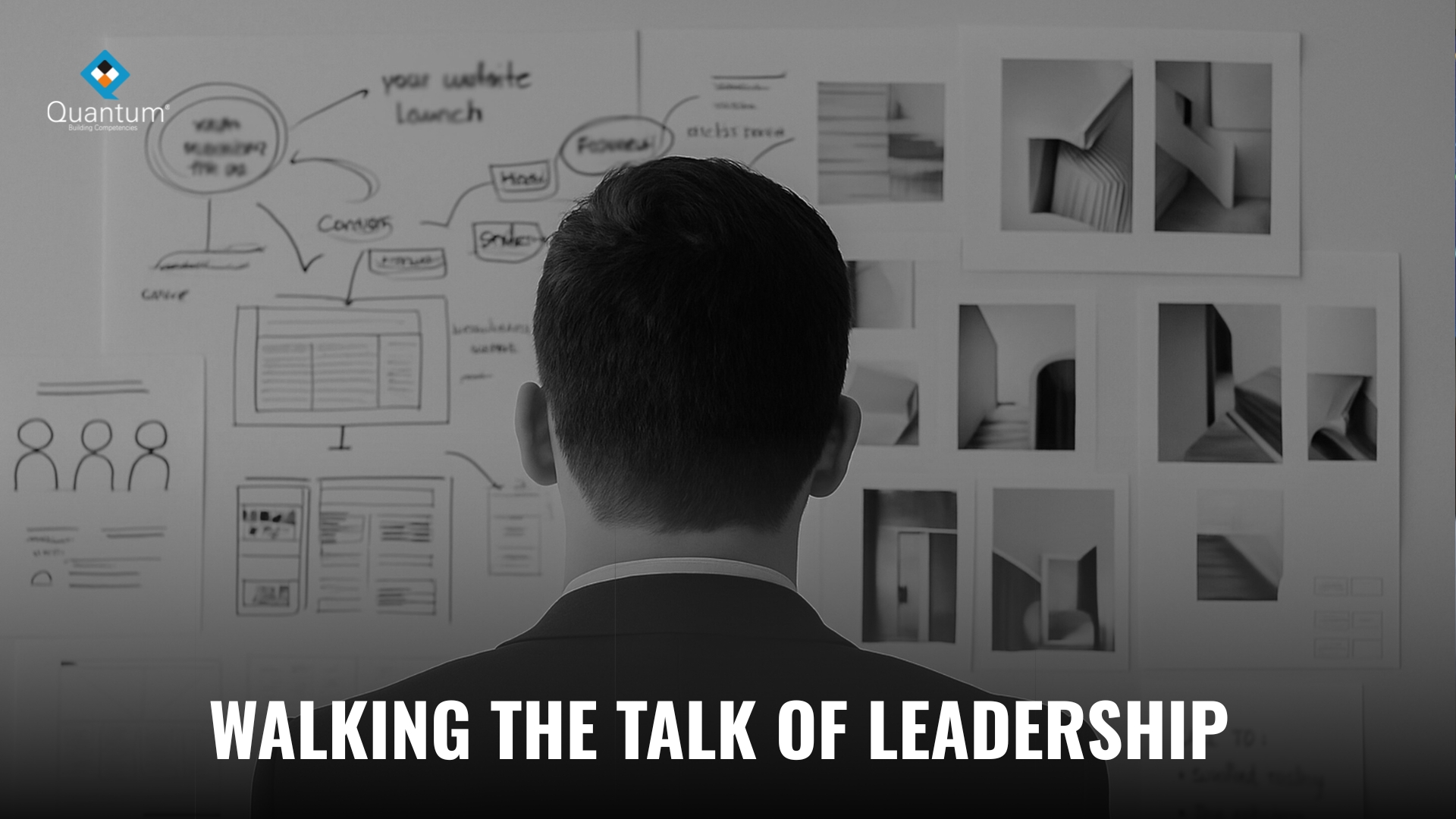
The Silent Killer of Progress: Why We Don’t Make Decisions (Even When We Know What’s Right)
The Monday Morning Meeting, Scene 1 CEO: “So, are we going to go ahead with the launch of the new

The Role of Emotional Intelligence in AI-Powered Business Strategies in Complex Environments. In a volatile, uncertain, complex, and ambiguous (VUCA) environment, businesses are contending with unprecedented challenges.
Artificial Intelligence (AI) is moving forward so quickly that strategies that used to work are now at risk of being disrupted. Companies need to not only come up with new ideas, but also be able to handle change and be flexible.
In his book Mastering Emotional Intelligence, Dr. Pratik P. SURANA says that emotional intelligence (EI) is the most important skill for leaders and people who can adapt in times like these. His insights, which are supported by case studies and real-world examples, show why emotional intelligence is so important for dealing with the VUCA world.
The VUCA World in the Age of AI
Instability:
Markets are more unstable than ever because AI makes it possible for new competitors to show up almost overnight. For example, AI-powered startups in healthcare, finance, and logistics are giving traditional giants a run for their money by providing faster, cheaper solutions.
Not sure:
It’s hard to guess what will happen in the future because technology changes so quickly. Generative AI tools like ChatGPT and DALL-E have changed the way content is made, customer service is handled, and even how software is made. This has left businesses unsure about how long their current business models will last.
Complicatedness:
The world is more connected than ever, and AI is being used in every part of business, which makes things even more complicated. Understanding complex AI-driven systems is now necessary for making decisions about everything from supply chain management to personalised marketing.
Uncertainty:
It’s hard to know how new technologies will affect businesses or what the “right” thing to do is in the age of AI. For instance, AI can automate tasks, but it also brings up moral and legal questions, like who is responsible for AI’s decisions.
Case Studies: VUCA Problems in Action
Case 1: Kodak’s Missed Chance
• The Situation: Kodak’s inability to keep up with digital photography is a classic example of how changes and unpredictability can make established plans hard to follow. Kodak stuck to its traditional film-based business model even though it made the first digital camera.
• VUCA Challenge: The market’s instability and uncertainty about digital adoption made it hard for them to make decisions.
• The Emotional Intelligence Connection: A leader with high EI could have made Kodak more flexible and encouraged new ideas, which would have stopped the company’s decline.
Case 2: Netflix’s success despite the challenges
• The Situation: Netflix went from renting DVDs to streaming, which was hard because of the complicated digital infrastructure and content licensing.
• VUCA Challenge: It was very hard to keep up with changes in technology and licensing agreements.
• EI in Action: Netflix’s leaders, especially Reed Hastings, showed emotional intelligence, adaptability, and resilience by keeping team morale high during tough times.
Conversations that Bring Up Problems
Scenario 1: A Strategy Meeting at a Retail Firm CEO: “Competitors using AI are cutting prices and offering same-day delivery. We have to do something.
CMO: “But how?” Putting AI solutions into action takes a lot of money and could make our current employees feel like they don’t belong.
“We need to find a balance between innovation and employee engagement,” said the head of HR. This is where change management is very important.
This conversation shows how important it is to be flexible and emotionally intelligent in order to make sure that strategy and execution are in sync.
Statistics that back up the claim
• EI-Driven Leadership: A Talent Smart study found that 90% of top performers have high emotional intelligence, which shows how useful it is for dealing with problems.
• Effect on Revenue: According to a study by PwC, companies with cultures that can change see their revenues grow 30% faster than those that don’t.
• AI and Jobs: The World Economic Forum says that AI will take away 85 million jobs by 2025, but it will also create 97 million new ones. This shows how important it is to manage change.
Emotional Intelligence: The Skill of the Future
In his book Mastering Emotional Intelligence, Dr. Pratik P. Surana talks about two important EI parts for VUCA times:
1. Change Management: Leaders need to give teams confidence and keep them motivated during times of change.
Dr. Surana says, “Change is not just outside; it needs internal strength and a growth mindset.”
2. Adaptability: Adaptable leaders stay calm when things are unclear, making sure the organisation stays on track.
Dr. Surana says, “Adaptability is not a luxury; it’s a survival skill in the AI era.”
Building EI for Success in a VUCA World
1. Self-Awareness: To be a good leader, you need to know your own strengths and weaknesses.
2. Empathy: Understand and address your employees’ worries when you change technology.
3. Making Decisions: Use both logical reasoning and emotional insights to make decisions that are fair.
4. Keep Learning: Keep up with the latest AI trends and encourage your teams to learn new skills.
Conclusion
EI is the link between strategy and success.
In the age of AI and VUCA problems, old-fashioned business strategies need to be updated with emotional intelligence. Dr. Pratik P. Surana says it best: “In a world of rapid change, emotional intelligence is the anchor that keeps leaders grounded and teams united.”
Businesses can not only survive but also thrive in uncertain times by encouraging flexibility, resilience, and empathy. The statistics and case studies show that the companies that put EI first will be the ones that write the success stories of the future.
© Dr. Pratik P. SURANA (Ph.D.)
Quantum Group.
#EmotionalIntelligence #AILeadership #VUCAWorld #BusinessStrategy #DrPratikSurana #QuantumThoughts #MasteringEI #FutureOfWork

The Monday Morning Meeting, Scene 1 CEO: “So, are we going to go ahead with the launch of the new

Scene 1:The Sharma & Sons Pvt. Ltd. boardroom on Monday morning Arjun, the son, said, “Dad, I think we should

“Culture eats strategy for breakfast.” What most leaders forget is that culture eats leaders first. Peter Drucker articulated this decades